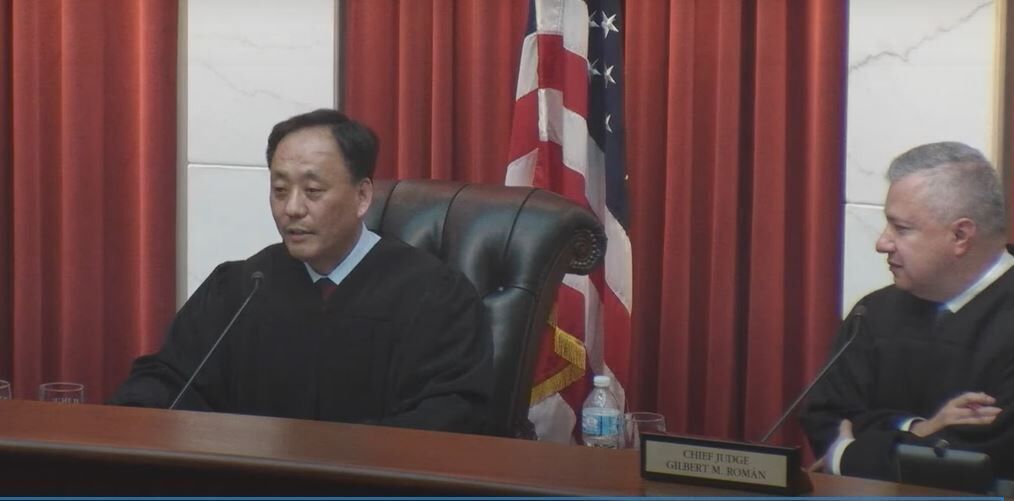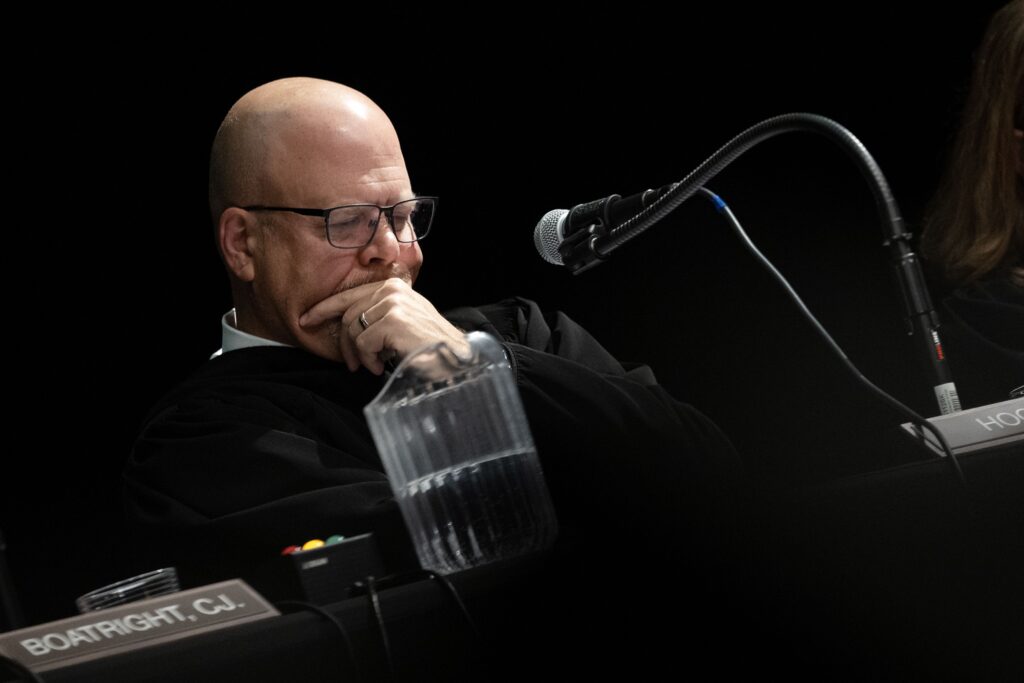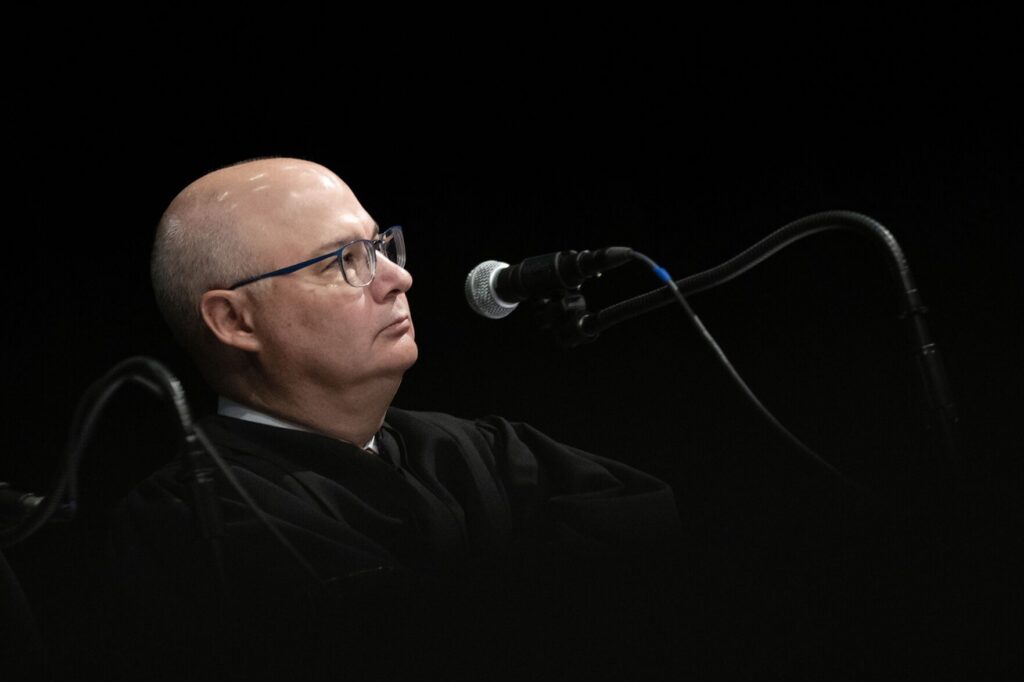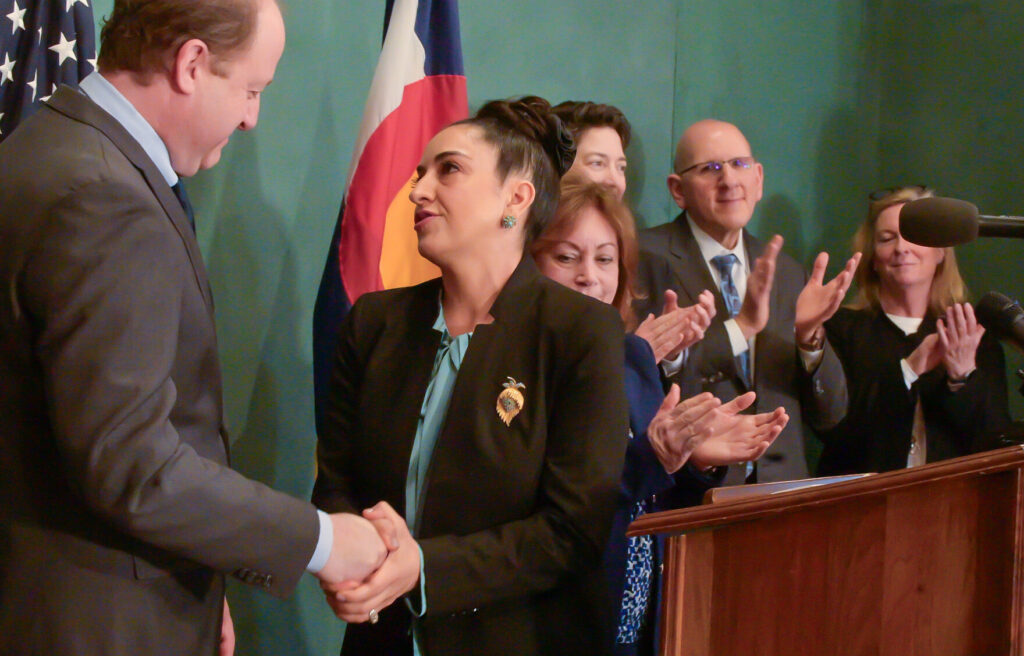State Supreme Court reverses kidnapping conviction due to faulty instruction

It is not accurate to define kidnapping as any movement, “however short in distance,” the Colorado Supreme Court decided on Monday, reversing a man’s conviction because a Gilpin County judge wrongly instructed the jury.
Under the law, someone who commits kidnapping seizes and carries a person from one place to another without their consent. But in response to a jury question in the trial of Nicholas Leonel Garcia Jr., then-District Court Judge Dennis J. Hall elaborated that seizing and carrying meant any degree of movement.
It is not always the case, the Supreme Court concluded, that moving someone is the same as transporting them from place to place in violation of the law.
“This instruction is completely at odds with the second degree kidnapping statute and is an incorrect definition of the elements of the crime,” Justice Maria E. Berkenkotter wrote in repudiating Hall’s attempted clarification.
Berkenkotter also slammed the tactics of the Colorado Attorney General’s Office in the case.
She noted that prosecutors had claimed to the Supreme Court that Garcia failed to object to the trial judge’s explanation, while admitting to the state’s intermediate Court of Appeals that the defense had objected after all. The justices had previously called out the attorney general’s shifting positions in 2020, and reiterated their disapproval in the Garcia decision.
“It is unclear why, in light of this admonition, the people consider it appropriate to try to walk back their concession,” Berkenkotter wrote in the Feb. 7 opinion. “A prosecutor’s ultimate goal is justice, which is not always synonymous with victory.”
Garcia’s conviction stemmed from a 2016 road trip between Black Hawk and Denver. In the victim’s telling, Garcia and three other men forced the victim into their car. When he tried to escape in a Denver-area alley, the men caught him and began to drive away again. A few blocks later, the victim was able to escape and he ran to call the police.
Garcia’s narrative portrayed the trip to Denver as consensual, with the parties intending to buy drugs after arriving. The victim reportedly became upset after the drug purchase and punched Garcia. The driver ordered everyone out and the fight continued in the alley. Then Garcia’s group drove off without the victim.
Two members of Garcia’s group pleaded guilty to robbery, assault and menacing. Garcia and the fourth defendant went to trial together. During jury deliberations, Hall received a note asking about the “parameters of kidnapping.”
“Is it considered kidnapping if a person is put back in a car? Is it kidnapping if they are dumped and left behind?” the jury asked.
Contrary to the wishes of the parties, and over the objection of the defense, Hall responded that he would clarify the meaning of the phrase “seizes and carries any person from one place to another” in the kidnapping law. The phrase, the judge responded, “is defined as ‘any movement,’ however short in distance.'”
The jury then convicted Garcia of kidnapping and other offenses and he received a sentence of 21 years in prison. On appeal, a panel of the Court of Appeals decided by 2-1 that Hall’s clarification reasonably responded to the jury’s concern about the level of control and movement required for a kidnapping offense. In doing so, the court upheld the kidnapping conviction.
Judge Jaclyn Casey Brown disagreed, believing the jury could have interpreted Garcia’s version of events – ejecting the victim from the car in the alley – as kidnapping.
“The courts are not at liberty to redefine the elements of a criminal offense,” she wrote in dissent.
The Supreme Court agreed with Brown’s conclusion. Hall’s clarification did not mention the legal requirement that a person seizes and carries another, nor did it answer the jury’s question about the “parameters of kidnapping.” As Brown theorized, the clarification could have made Garcia guilty of kidnapping even if the jury believed the defense.
“That is not second degree kidnapping,” Berkenkotter wrote.
Because Hall had lowered the bar for prosecutors to prove Garcia guilty, the Supreme Court reversed the Court of Appeals’ decision for the kidnapping offense.
The case is Garcia v. People.














